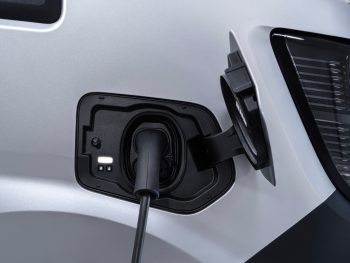LCV registrations in the UK grew by 2.2% in February to 17,934 units, marking the 14th consecutive month of growth.

It heralds the best performance for the month for 26 years and comes ahead of the March number plate change.
Large vans remained the most popular as demand rose by 1.4% to 12,300 units, accounting for almost seven in 10 (68.6%) of all new vans as the trend for larger units continues.
Meanwhile, medium- and small-sized van demand declined by 5.9% and 20.5% respectively, falling to 3,162 and 275 units.
The smaller-volume 4×4 segment saw registrations more than double, rising by 108.3%, while pickups were the third most popular class of commercial vehicle after heavy and medium vans, with registrations rising 21.2%. Such vehicles are crucial for many rural and construction business operations and the SMMT said the Government’s recent decision to scrap changes to double cab pickup vehicle taxation will ensure that operators can continue to invest in newer, lower-emission models. The trade body also said that it would be fairer and simpler to use a vehicle’s type approval as the basis to define it as a car or commercial vehicle for all tax purposes.
Worryingly, February saw a decline in registrations of battery electric vans weighing up to 3.5 tonnes, falling by 12.3% or 119 units to 847 units, and taking a 4.7% market share, down from 5.5% a year ago.
Van manufacturers are now mandated to achieve a minimum proportion of zero emission registrations every year – and February’s 4.7% share is less than half the 10% mandated for OEMs for 2024. Year-to-date, the figure stands at 4.9%, showing no progress from the same period in 2023.
The SMMT said maintaining existing purchase incentives and ensuring charge point rollout – including van-specific charging infrastructure – will be essential to help raise demand to the level needed to deliver net zero rapidly.
Mike Hawes, SMMT chief executive, said: “Britain’s appetite for new vans remains undiminished with 14 months of growth and, with last month’s rethink of taxation for pick-ups, expansion looks to be sustained.
“However, this growth and confidence must be translated into zero emission vehicles if we are to deliver our green goals. Maintenance of essential incentives and a ramp up of dedicated van-suitable charge point installation will be vital if we are to help keep long-term, net zero fleet investment moving forward at the pace needed.”
The Association of Fleet Professionals (AFP) has said that progressing zero-emission van deployment will be a top priority for operators in 2024, but warned that it will be an incremental process as fleets work to overcome tricky practical and strategic issues.
It’s teamed up with the BVRLA and a coalition of other partners to create a Zero Emission Van Plan, setting out where vital action is needed and recently launched at a parliamentary event. The plan features key asks and recommendations on changes to electric van affordability, vehicle charging and regulations.
Fleets are being encouraged to support the plan by completing a very short online poll to strengthen the data the coalition is putting to policy-makers.

